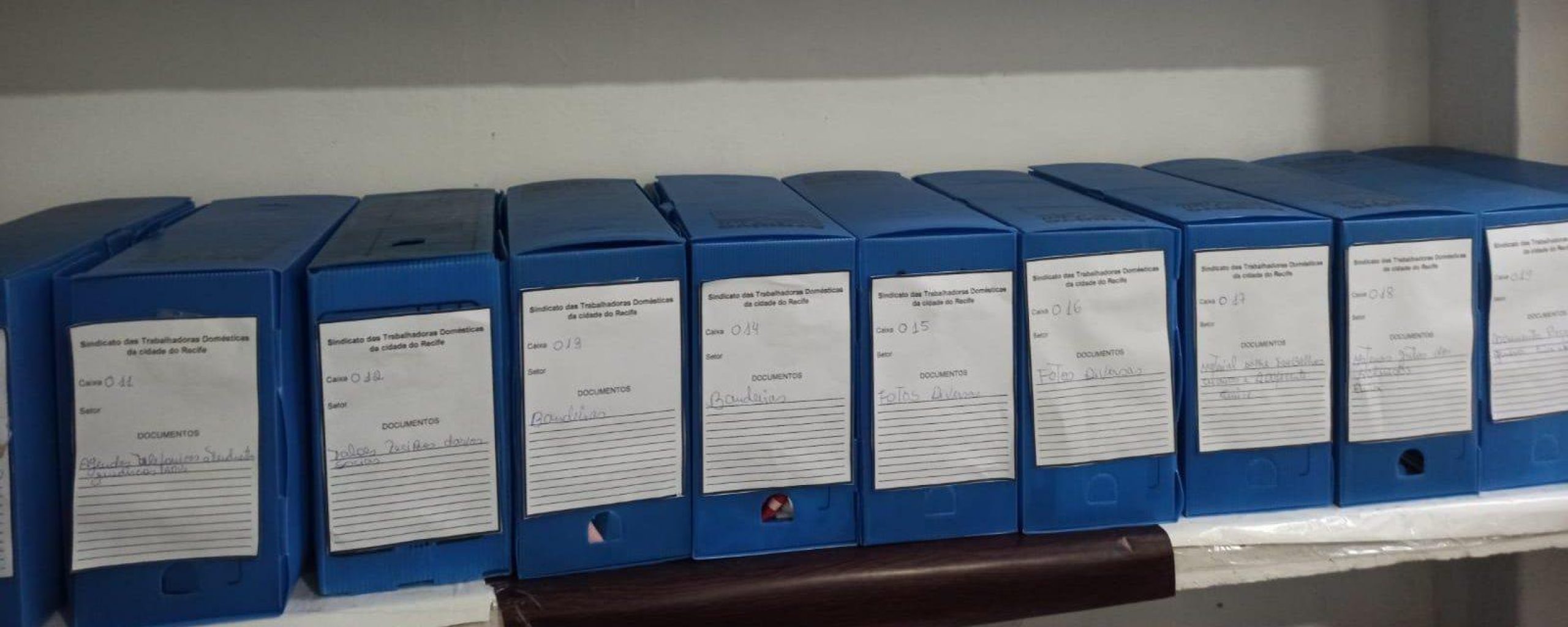About the Project
Following a successful Planning Grant, members of FENATRAD, Brazil’s National Domestic Workers’ Union Federation will digitize the union's archive. This collection includes materials documenting activities at the vanguard of Brazilian labour organizing. As a group that has been dramatically underrepresented in the historical record, domestic workers have much to gain from accessing their institutional memory. The archive will not only empower contemporary activists, but also shift historical narratives that have privileged certain voices over others.
Project Leads
- Meg Weeks, Harvard University (US)
- Joaze Bernardino-Costa, University of Brasília (Brazil)
Host Institution
More Information
Download Collection Inventories
This collection documents the activities of Brazil’s national federation of domestic-worker unions, or the Federação Nacional das Trabalhadoras Domésticas (FENATRAD). The organization was founded in 1997 as a successor to the Conselho Nacional das Trabalhadoras Domésticas, a national body of domestic-worker activists that served as an organ for lobbying, interfacing with politicians, and coordinating the activities of the many local unions of domestic workers across Brazil. The documents from FENATRAD and the Conselho Nacional represent the movement’s history on a national level, and include records of national meetings, organizational statutes, informational bulletins on movement goals, strategies, and activities, correspondence with members and allies, and photographs.
This collection is held in two locations: Recife and Salvador.
RECIFE COLLECTION
The collection in Recife holds two different kinds of documents, including materials related to the Federação Nacional das Trabalhadoras Domésticas (FENATRAD) and a set of materials related to the local union.
Download the Inventory >(opens in a new tab)
- The first tab on the inventory reflects an item level description of national documents in Recife, mostly from when that city served as the headquarters for FENATRAD, in the 1990s and again in the mid to late 2000s.
- The second tab on our inventory for Recife pertains to the local union’s archival collection. The local Recife association of domestic workers was founded in 1979, although domestic workers in that city had begun meeting to discuss problems facing their sector in the late 1950s through a progressive Catholic group called Juventude Operária Católica (Catholic Youth Workers or JOC). After the Constitution of 1988 granted the sector the right to unionize, the Recife association became a fully-fledged union with a staff of lawyers to aid domestic workers in disputes with their employers. The union also provides information to domestic workers on their legal rights, organizes social activities, and distributes material aid, especially during the COVID-19 pandemic. The materials from the local collection include the informational bulletin/newsletter Domésticas em luta, which has documented local union activities, informed domestic workers of their rights, and encouraged political participation since the 1980s. The collection also contains banners, posters, photographs, accounting records, member identification cards, union election documents, and meeting records. We estimate this collection of selected local materials to have between 600-700 items.
SALVADOR COLLECTION
The FENATRAD collection in Salvador, Brazil provides a comprehensive picture of the national Domestic Workers movement’s activities over the past four decades in addition to some materials related to the local union. Because Salvador served as the headquarters of the national union federation for many years, the local union has collected thousands of documents created by FENATRAD and its precursors. The documents include national and local newsletters, notes from regional and national meetings, organization statutes, correspondence with other unions, social movement leaders, and politicians, and financial records. The collection also contains photos, posters, newspaper clippings, and informational and educational booklets on topics ranging from human rights to the legislation regulating domestic work to racism and women’s rights.
Download the Inventory >(opens in a new tab)
